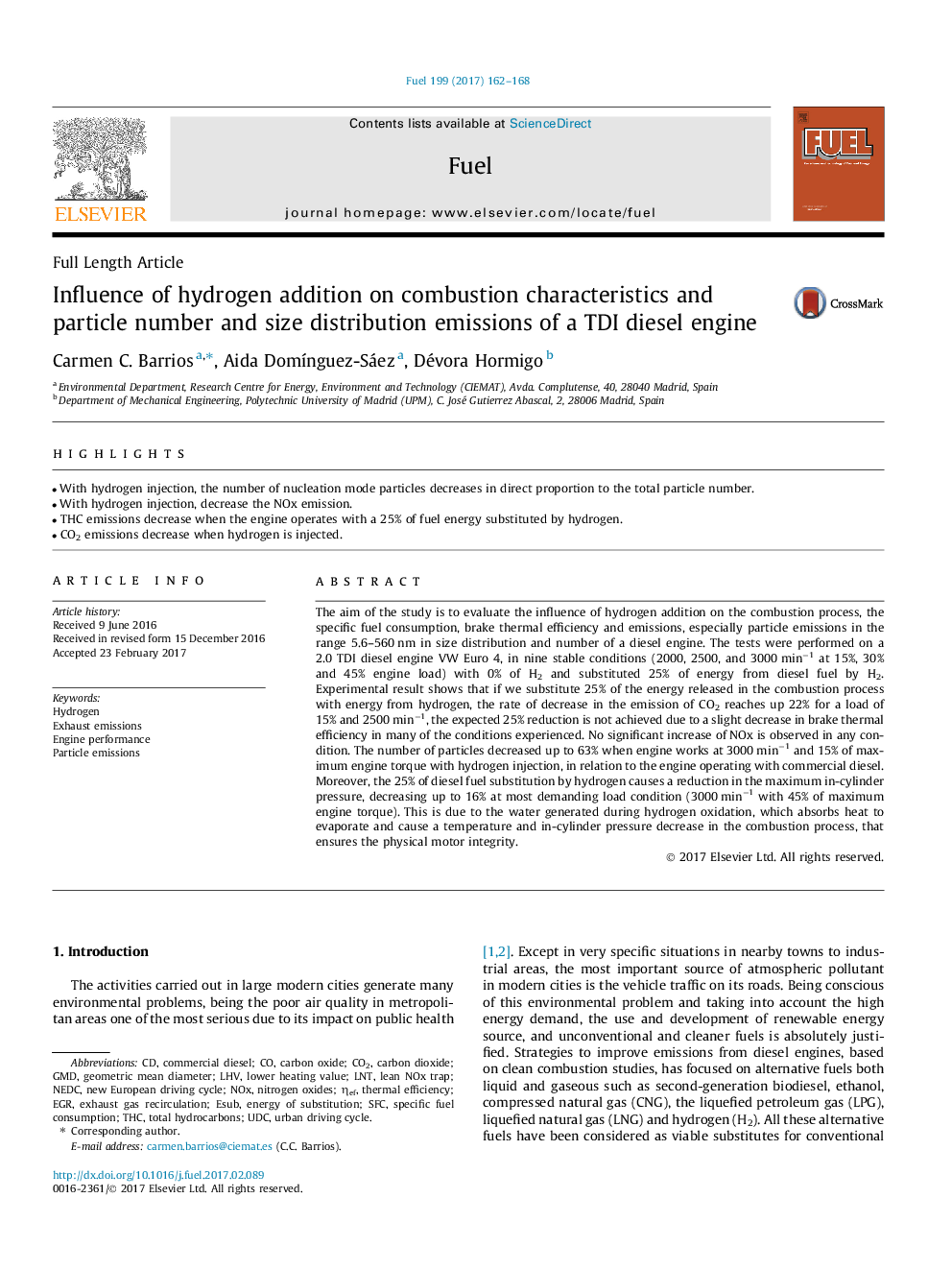| کد مقاله | کد نشریه | سال انتشار | مقاله انگلیسی | نسخه تمام متن |
|---|---|---|---|---|
| 6474724 | 1424965 | 2017 | 7 صفحه PDF | دانلود رایگان |

- With hydrogen injection, the number of nucleation mode particles decreases in direct proportion to the total particle number.
- With hydrogen injection, decrease the NOx emission.
- THC emissions decrease when the engine operates with a 25% of fuel energy substituted by hydrogen.
- CO2 emissions decrease when hydrogen is injected.
The aim of the study is to evaluate the influence of hydrogen addition on the combustion process, the specific fuel consumption, brake thermal efficiency and emissions, especially particle emissions in the range 5.6-560Â nm in size distribution and number of a diesel engine. The tests were performed on a 2.0 TDI diesel engine VW Euro 4, in nine stable conditions (2000, 2500, and 3000Â minâ1 at 15%, 30% and 45% engine load) with 0% of H2 and substituted 25% of energy from diesel fuel by H2. Experimental result shows that if we substitute 25% of the energy released in the combustion process with energy from hydrogen, the rate of decrease in the emission of CO2 reaches up 22% for a load of 15% and 2500Â minâ1, the expected 25% reduction is not achieved due to a slight decrease in brake thermal efficiency in many of the conditions experienced. No significant increase of NOx is observed in any condition. The number of particles decreased up to 63% when engine works at 3000Â minâ1 and 15% of maximum engine torque with hydrogen injection, in relation to the engine operating with commercial diesel. Moreover, the 25% of diesel fuel substitution by hydrogen causes a reduction in the maximum in-cylinder pressure, decreasing up to 16% at most demanding load condition (3000Â minâ1 with 45% of maximum engine torque). This is due to the water generated during hydrogen oxidation, which absorbs heat to evaporate and cause a temperature and in-cylinder pressure decrease in the combustion process, that ensures the physical motor integrity.
Journal: Fuel - Volume 199, 1 July 2017, Pages 162-168